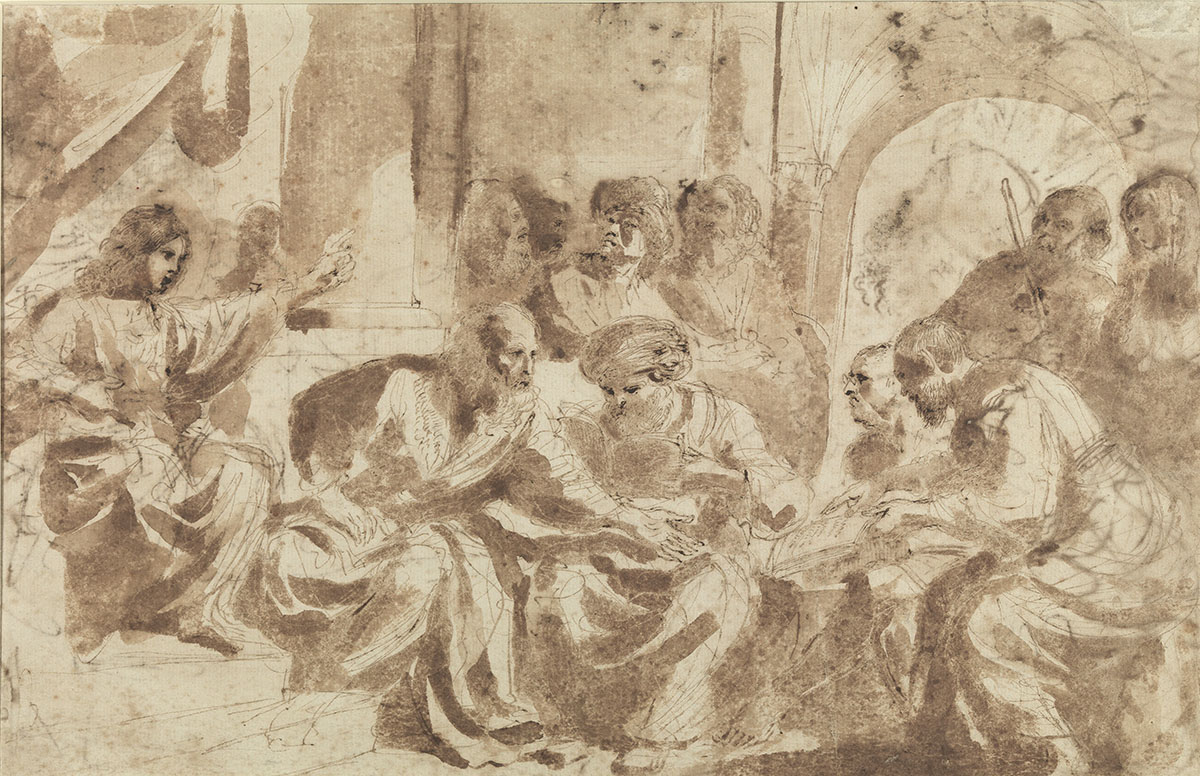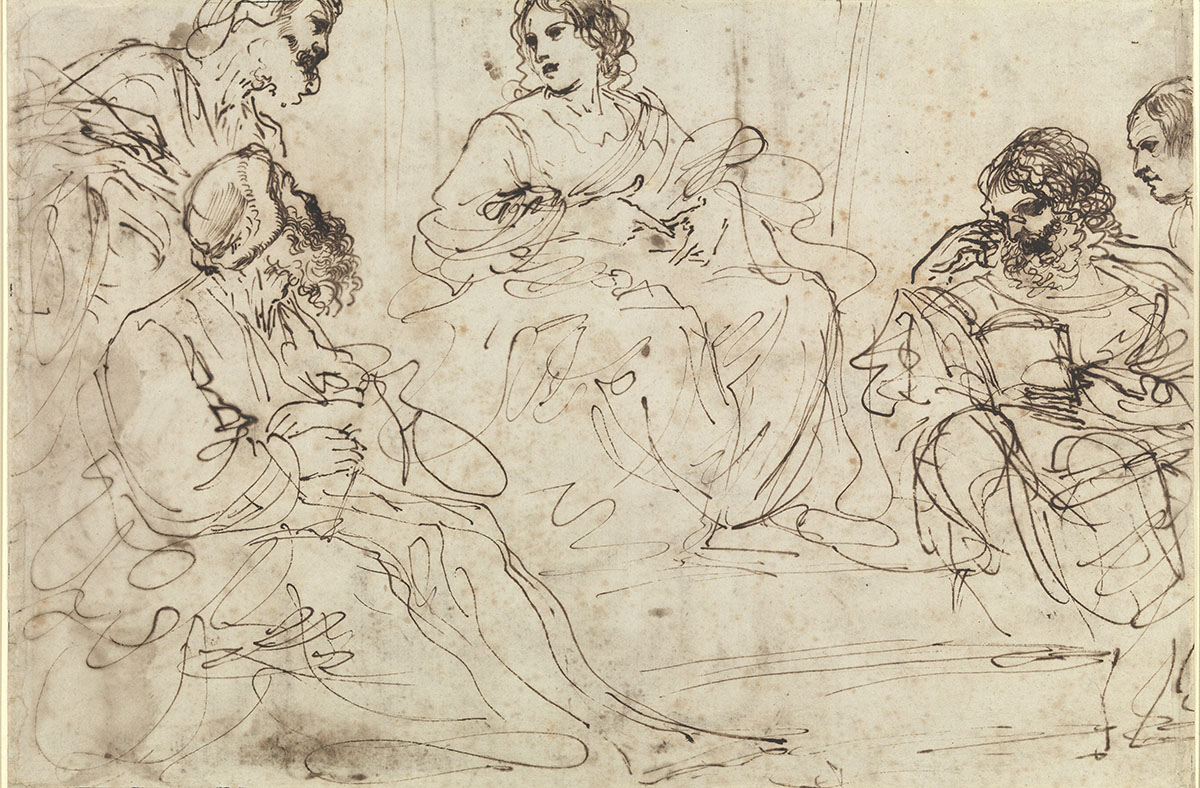Not On View
Barbieri, Giovanni Francesco; Il Guercino
Italian (1591-1666)
Place made: Europe; Italy
Christ Among the Doctors, Christ Teaching in the Temple, ca. 1620-1630
Mat: 16 in x 22 in; 40.6 cm x 55.9 cm; Sheet/Image: 10 in x 15 3/8 in; 25.4 cm x 39.1 cm
Purchase with the Nancy Everett Dwight Fund
MH 1954.1.P.RIV

 GIVE
GIVE
